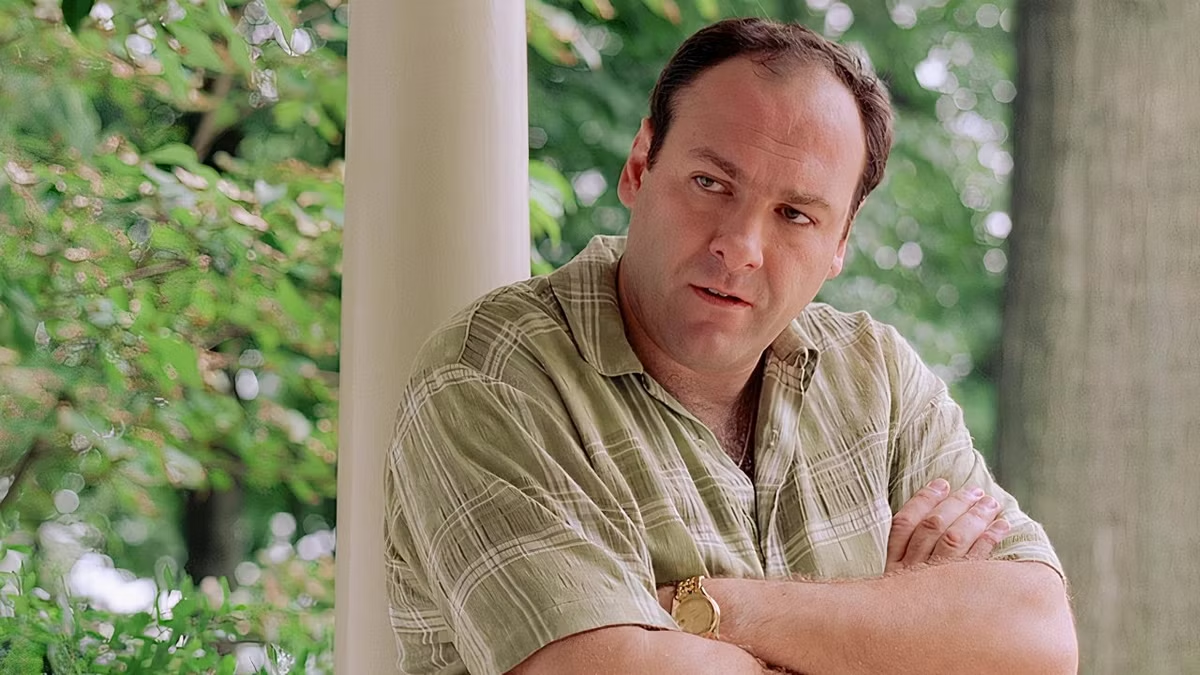8 Reasons It’s Tough to Watch The Sopranos Today

The Sopranos is often hailed as one of the greatest TV shows ever made, and for good reason. It set the standard for every morally gray antihero drama that followed and changed how audiences viewed television storytelling. However, even classics can show their age.
More than twenty years later, some parts of The Sopranos haven’t aged as gracefully as others. The show’s slow pacing, dated production style, and uncomfortable social attitudes can make it a challenging watch for modern viewers. Here’s why revisiting The Sopranos today might feel tougher than you remember.
The Sopranos Is Slower-Paced Than Most Modern TV Shows
Tony Soprano has a meeting with his capos in The Sopranos.Image via HBO
Modern TV viewers are used to bite-sized content. To cater to that, many TV shows are presented as miniseries with a short episode count. The Sopranos takes a different approach, with its story evolving over several seasons at a much slower pace. The show isn’t afraid to let silence linger.
The Sopranos‘ slower pace can be frustrating for modern viewers who don’t want to commit to a longer show no matter its stellar reputation. Still, if new viewers are aware of this heading into the show, at least they can cope preemptively and not be so shocked at how The Sopranos takes its time.
The Sopranos’ Treatment of Women Has Aged Poorly
Tony and Carmela Soprano from the Sopranos
“The Blue Comet”
Image via HBO
The Sopranos‘ main character, Tony Soprano, is painfully misogynistic. His dated views are on full display in every interaction he has with a woman, whether it’s his mother, his wife, his daughter, his psychiatrist, or his many girlfriends.
Characters like Carmela Soprano and Adriana La Cerva are constrained by the dated gender politics from the early 2000s. To modern audiences, it can be tough to watch such strong women repeatedly retreat into themselves or make themselves lesser to cater to the men in their lives.
The Sopranos’ Casual Racism and Homophobia Can Be Jarring
Tony Soprano pokes Meadow’s boyfriend Noah Tannenbaum with a newspaper in The Sopranos “Proshai Livushka”Image via HBO
The Sopranos‘ doesn’t pull any punches when it comes to the racist and homophobic sentiments felt by many of the leading cast. While this approach was meant to come across to the viewer as realism, it’s still uncomfortable to watch.
Christopher and other mobsters rely on homophobic slurs when calling out weakness. When Meadow befriends and later dates Noah Tannenbaum, Tony’s prejudices cause a major rift between Meadow and her parents. This storyline seems like an attempt to shed light on many of the problematic attitudes and language used by Tony and other supporting characters.
The Sopranos’ Groundbreaking Style Has Been Imitated to Death
Tony, Paulie and Silvio corner and kill Sal on the boat.Image via HBO
When The Sopranos premiered in 1999, it heralded a new kind of television. The show was slower paced, made intentional use of awkward silences, featured a muted color palette, and much of the editing felt abrupt. Viewers ate it up, and follow-up series took notice.
Now, modern TV watchers aren’t just familiar with The Sopranos‘ groundbreaking style; they expect it. Crime dramas like The Wire and Breaking Bad employed many of the techniques The Sopranos invented, so modern viewers watching The Sopranos for the first time might feel like these very same elements are more cliché than revolutionary.
Tony Soprano Isn’t as Compelling Now That Modern TV Is Full of Morally Gray Protagonists
Tony yelling while next to Bobby in The SopranosImage via HBO
In the same vein as The Sopranos‘ style feeling tired now that there are so many imitators out there, so too does Tony Soprano feel overdone in the eyes of a modern viewer. Fans who grew up watching Walter White turn from a family man into a drug lord in Breaking Bad may not ‘get’ how important Tony Soprano is to modern television.
The reality is that Walter White would not exist without Tony Soprano. In a way, Walter White’s violence and manipulation feel more intimate than Tony Soprano’s, but that’s just because The Sopranos is a generational saga, not the story of one man’s descent into criminality.
Tony Soprano talking at a payphone at a gas station in Maine in The SopranosImage via HBO
The lack of smart technology or smartphones may seem like it’s not a big deal, but these elements help modern television feel relatable to audiences. It’s easier to picture yourself in the show or movie’s world with familiar comforts. The Sopranos is over two decades old, and technology has changed a lot since then.
The Sopranos is a time capsule for the late ’90s and early 2000s, and the tech used in the show reflects this. Mobsters regularly drive to various pay phones and use pagers and bulky flip phones. While computers are present, especially in settings like Meadow’s room and the FBI offices, they are large and use dial-up internet. Even the technology used as a status symbol, like the Sopranos’ home entertainment system or Tony’s car phone, signal to the viewer a different era.
The Sopranos’ Dream Sequences Test Even the Most Patient Viewers
James Gandolfini is Tony Soprano in the episode Join The Club, The SopranosImage via HBO
The Sopranos broke the mold in a lot of ways, one of which is its experimentation with dream storytelling. Season 5, Episode 11, “The Test Dream,” is considered one of the longest dream sequences ever seen on television. Later, Season 6, Episode 2, also featured an extended dream sequence while Tony is in a coma.
Tony’s dreams are full of meaning, shedding light on how his subconscious grapples with the contradictions of his double life. However, to a modern audience, they can be frustrating. The Sopranos is an inherently suspenseful show, and drawn-out dream sequences can cause impatience to viewers who just want to know what happens next.
Everyone Already Knows How The Sopranos Ends
The Soprano family wait in a diner in The Sopranos series finaleImage via HBO
The Sopranos‘ finale is famous. The cut-to-black has been dissected over and over again, and it’s safe to assume at this point that fans will never know Tony’s ultimate fate. Because of the absolute grip The Sopranos has had on pop culture for the past two decades, it’s hard to find someone who doesn’t know how the show ends even if they’ve never watched the series.
For a modern viewer who wants to watch The Sopranos for the first time, going into the series knowing how it ends is a particular brand of frustration. It is true that, for some media, the journey is more important than the destination; however, even for all his horridness, fans grow attached to Tony Soprano throughout the seasons. Knowing his fate is ambiguous from the start is just as heartbreaking as going in blind.
Release Date
1999 – 2007
Network
HBO
Showrunner
David Chase
Directors
Tim Van Patten, John Patterson, Alan Taylor, Jack Bender, Steve Buscemi, Daniel Attias, David Chase, Andy Wolk, Danny Leiner, David Nutter, James Hayman, Lee Tamahori, Lorraine Senna, Matthew Penn, Mike Figgis, Nick Gomez, Peter Bogdanovich, Phil Abraham, Rodrigo García
Writers
Michael Imperioli, Jason Cahill, Lawrence Konner, David Flebotte, James Manos, Jr., Salvatore Stabile, Toni Kalem, Mark Saraceni, Nick Santora
-
James Gandolfini
Tony Soprano
-
Edie Falco
Carmela Soprano





